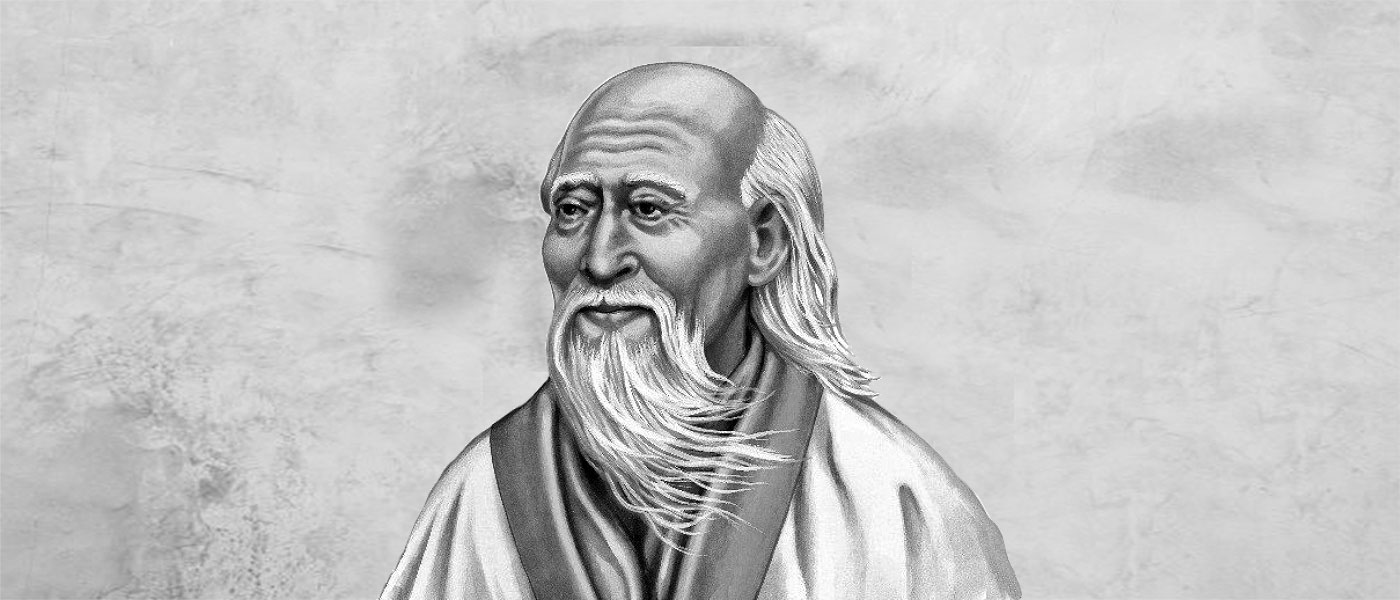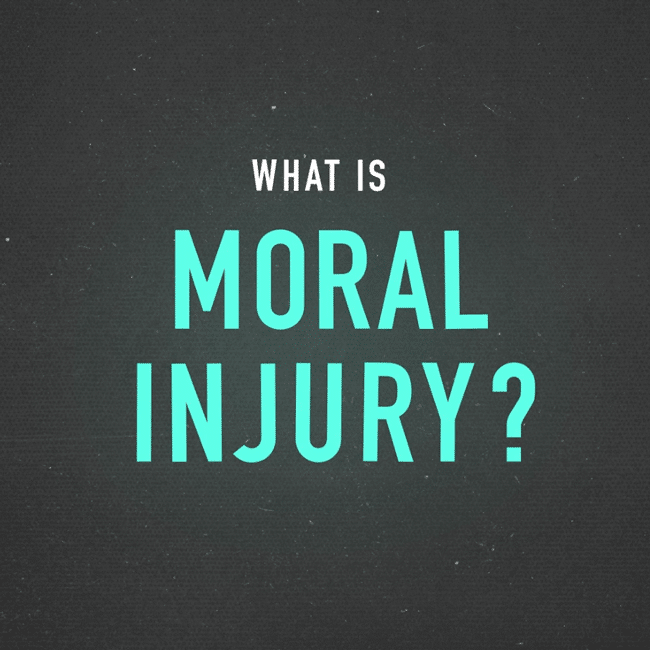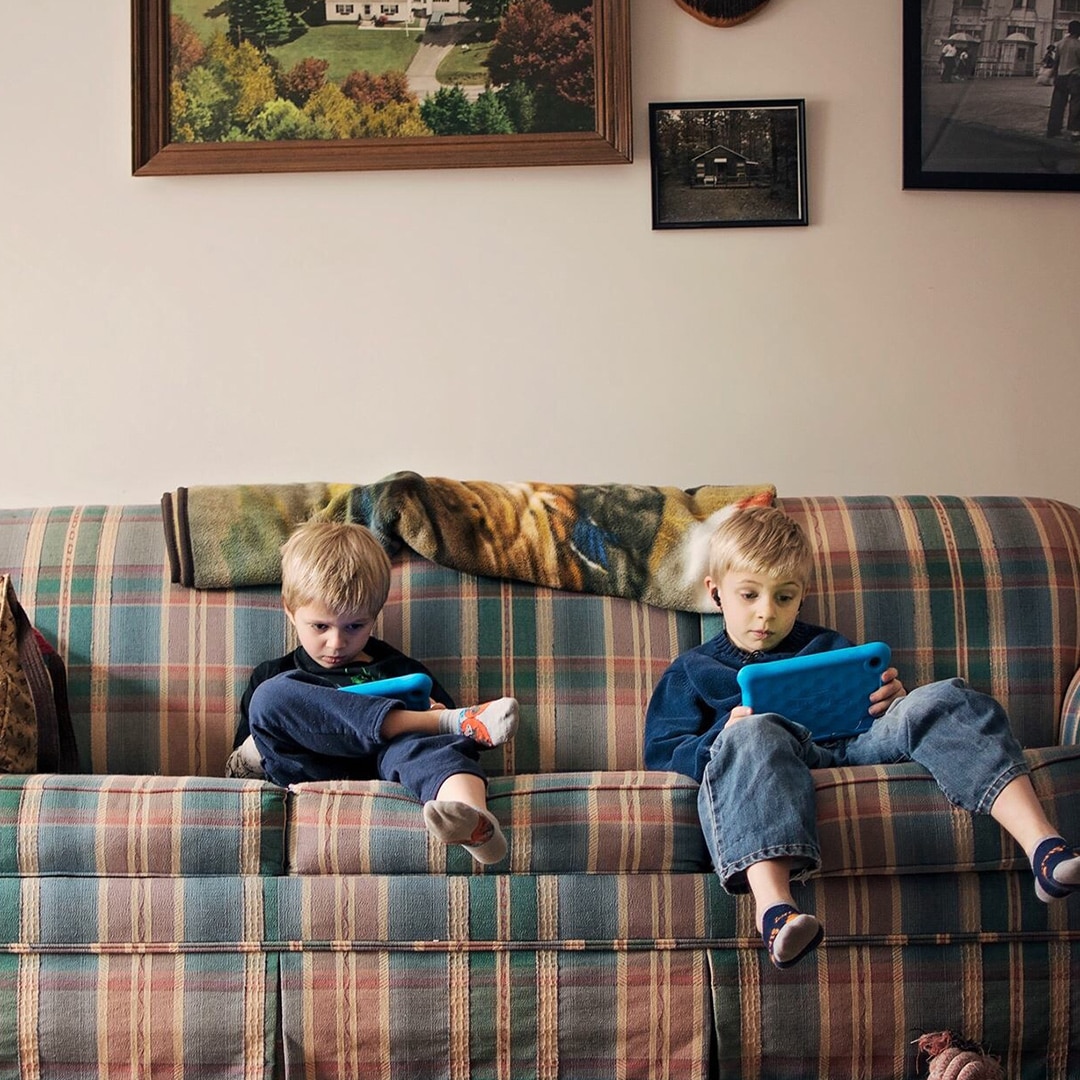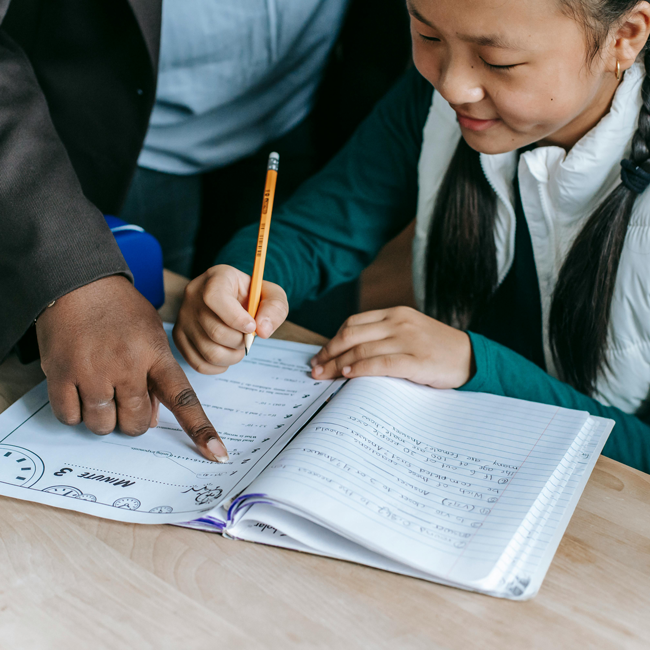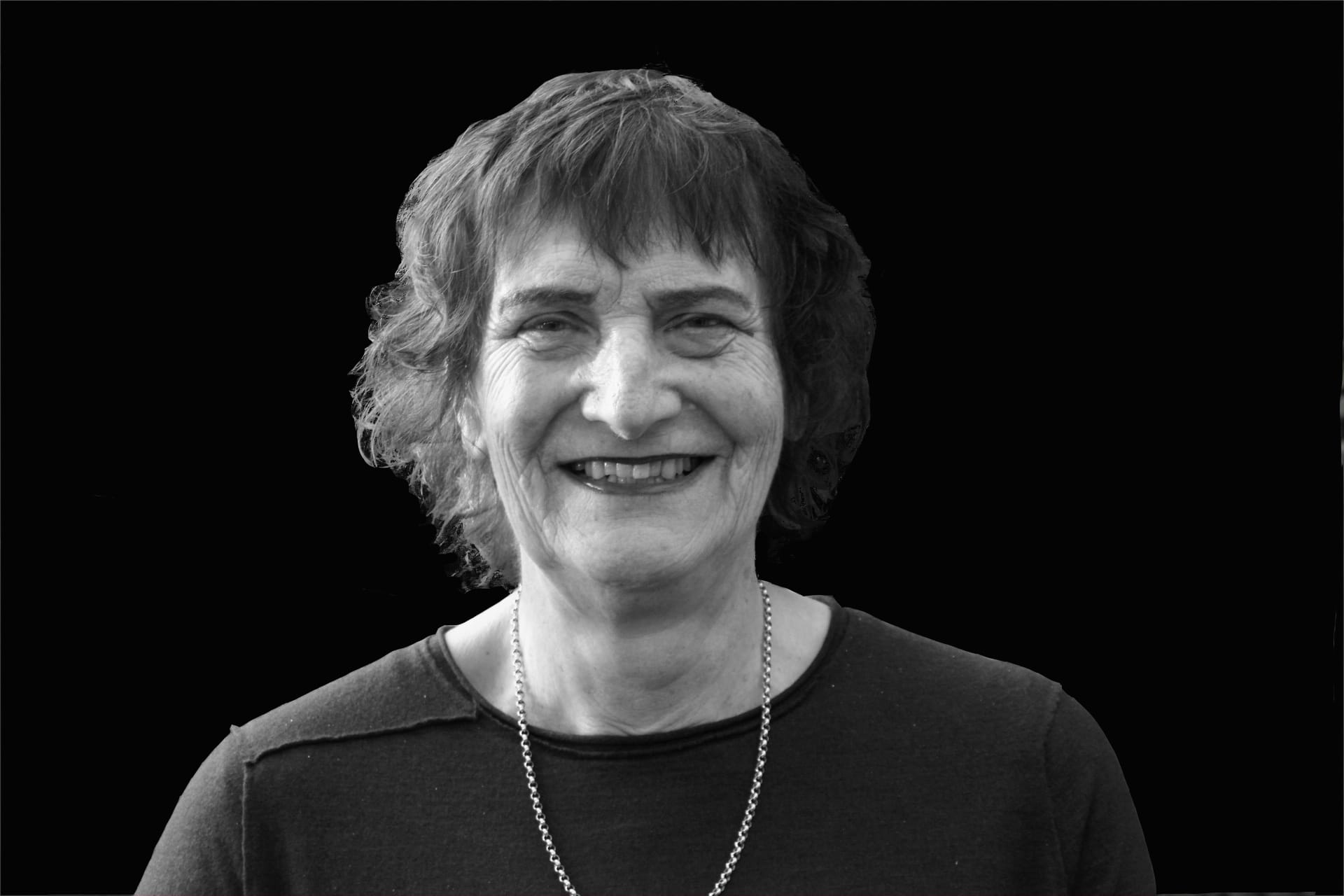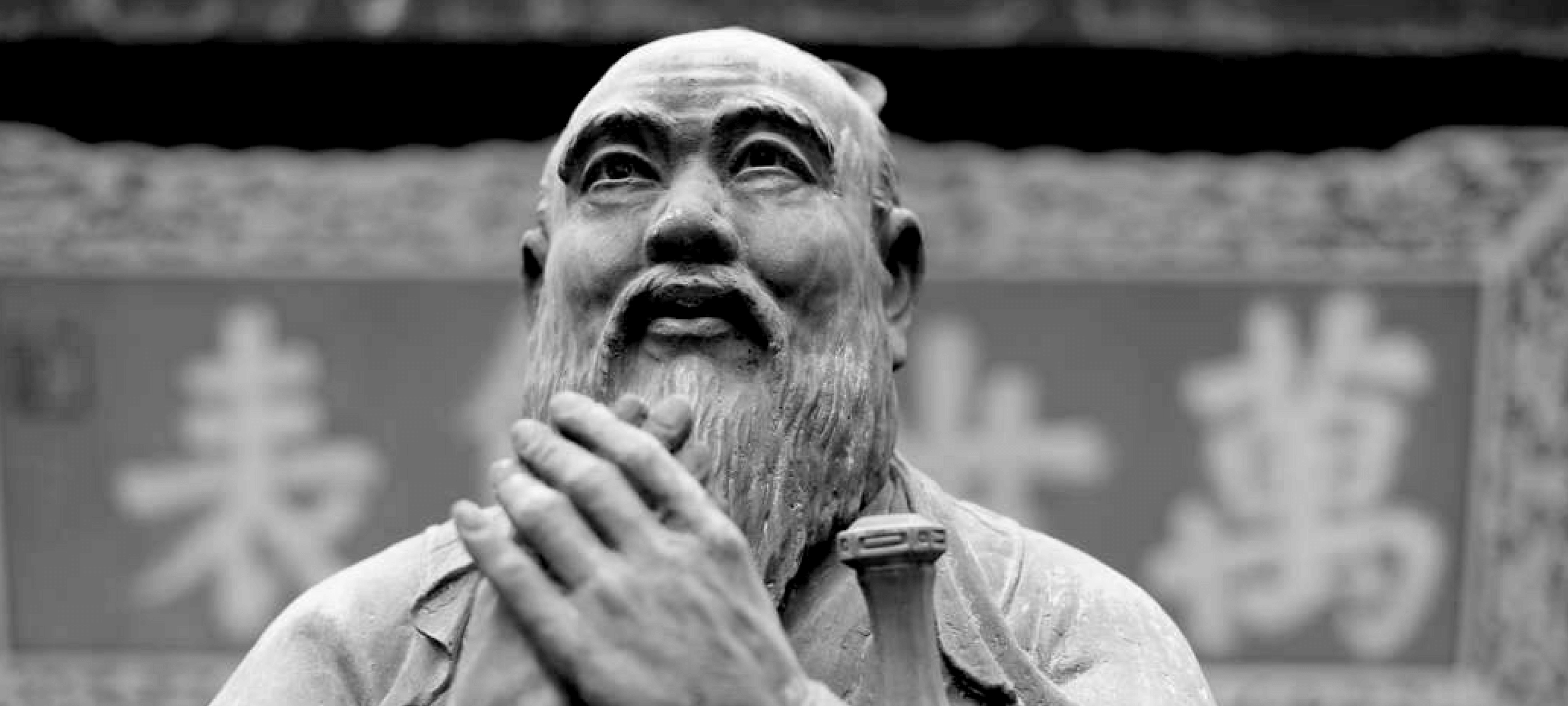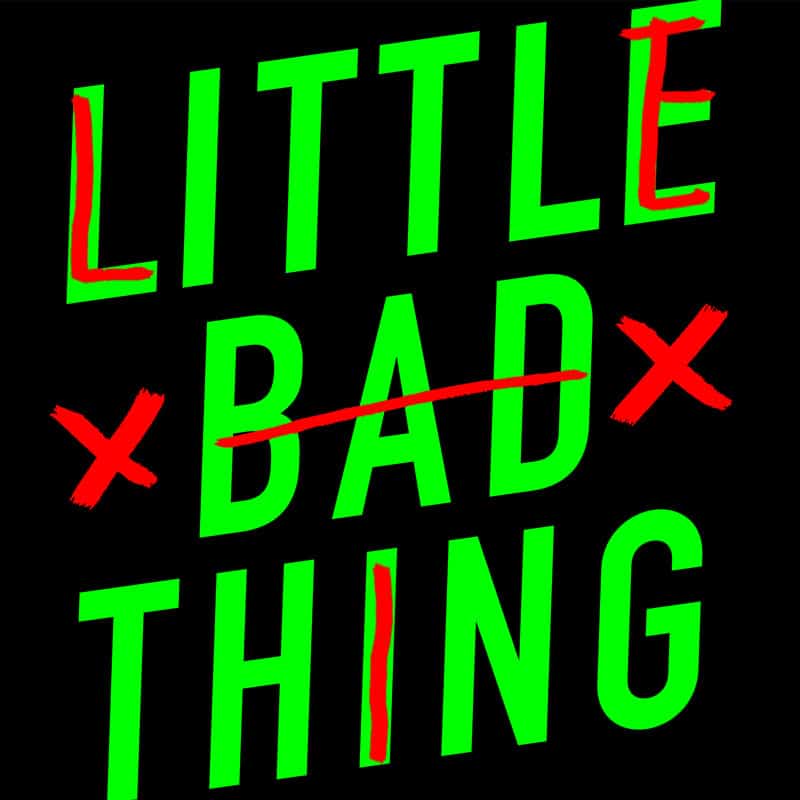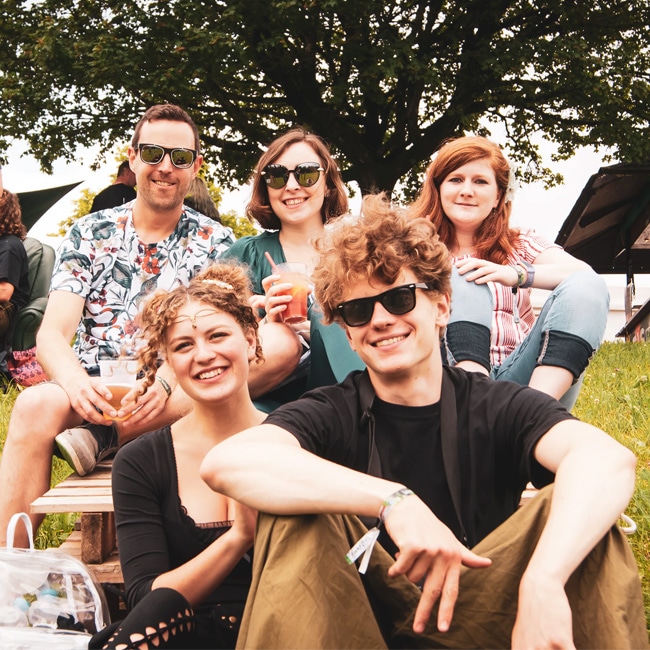Hallucinations that help: Psychedelics, psychiatry, and freedom from the self

Hallucinations that help: Psychedelics, psychiatry, and freedom from the self
Opinion + AnalysisHealth + WellbeingRelationshipsScience + Technology
BY Joseph Earp 22 FEB 2022
Dr. Chris Letheby, a pioneer in the philosophy of psychedelics, is looking at a chair. He is taking in its individuated properties – its colour, its shape, its location – and all the while, his brain is binding these properties together, making them parts of a collective whole.
This, Letheby explains, is also how we process the self. We know that there are a number of distinct properties that make us who we are: the sensation of being in our bodies, the ability to call to mind our memories or to follow our own trains of thought. But there is a kind of mental glue that holds these sensations together, a steadfast, mostly uncontested belief in the concrete entity to which we refer when we use the word “me.”
“Binding is a theoretical term,” Letheby explains. “It refers to the integration of representational parts into representational wholes. We have all these disparate representations of parts of our bodies and who we were at different points at time and different roles we occupy and different personality traits. And there’s a very high-level process that binds all of these into a unified representation; that makes us believe these are all properties and attributes of one single thing. And different things can be bound to this self model more tightly.”
Freed from the Self
So what happens when these properties become unbound from one another – when we lose a cohesive sense of who we are? This, after all, is the sensation that many experience when taking psychedelic drugs. The “narrative self” – the belief that we are an individuated entity that persists through time – dissolves. We can find ourselves at one with the universe, deeply connected to those around us.
Perhaps this sounds vaguely terrifying – a kind of loss. But as Letheby points out, this “ego dissolution” can have extraordinary therapeutic results in those who suffer from addiction, or experience deep anxiety and depression.
“People can get very harmful, unhealthy, negative forms of self-representation that become very rigidly and deeply entrenched,” Letheby explains.
“This is very clear in addiction. People very often have all sorts of shame and negative views of themselves. And they find it very often impossible to imagine or to really believe that things could be different. They can’t vividly imagine a possible life, a possible future in which they’re not engaging in whatever the addictive behaviours are. It becomes totally bound in the way they are. It’s not experienced as a belief, it’s experienced as reality itself.”
This, Letheby and his collaborator Philip Gerrans write, is key to the ways in which psychedelics can improve our lives. “Psychedelics unbind the self model,” he says. “They decrease the brain’s confidence in a belief like, ‘I am an alcoholic’ or ‘I am a smoker’. And so for the first time in perhaps a very long time [addicts] are able to not just intellectually consider, but to emotionally and experientially imagine a world in which they are not an alcoholic. Or if we think about anxiety and depression, a world in which there is hope and promise.”
A comforting delusion?
Letheby’s work falls into a naturalistic framework: he defers to our best science to make sense of the world around us. This is an unusual position, given some philosophers have described psychedelic experiences as being at direct odds with naturalism. After all, a lot of people who trip experience what have been called “metaphysical hallucinations”: false beliefs about the “actual nature” of the universe that fly in the face of what science gives us reason to believe.
For critics of the psychedelic experience then, these psychedelic hallucinations can be described as little more than comforting falsehoods, foisted upon the sick – whether mentally or physically – and dying. They aren’t revelations. They are tricks of the mind, and their epistemic value remains under question.
But Letheby disagrees. He adopts the notion of “epistemic innocence” from the work of philosopher Lisa Bortolotti, the belief that some falsehoods can actually make us better epistemic agents. “Even if you are a naturalist or a materialist, psychedelic states aren’t as epistemically bad as they have been made out to be,” he says, simply. “Sometimes they do result in false beliefs or unjustified beliefs … But even when psychedelic experiences do lead to people to false beliefs, if they have therapeutic or psychological benefits, they’re likely to have epistemic benefits too.”
To make this argument, Letheby returns again to the archetype of the anxious or depressed person. This individual, when suffering from their illness, commonly retreats from the world, talking less to their friends and family, and thus harming their own epistemic faculties – if you don’t engage with anyone, you can’t be told that you are wrong, can’t be given reasons for updating your beliefs, can’t search out new experiences.
“If psychedelic states are lifting people out of their anxiety, their depression, their addiction and allowing people to be in a better mode of functioning, then my thought is, that’s going to have significant epistemic benefits,” Letheby says. “It’s going to enable people to engage with the world more, be curious, expose their ideas to scrutiny. You can have a cognition that might be somewhat inaccurate, but can have therapeutic benefits, practical benefits, that in turn lead to epistemic benefits.”
As Letheby has repeatedly noted in his work, the study of the psychiatric benefits of psychedelics is in its early phases, but the future looks promising. More and more people are experiencing these hallucinations – these new, critical beliefs that unbind the self – and more and more people are getting well. There is, it seems, a possible world where many of us are freed from the rigid notions of who we are and what we want, unlocked from the cage of the self, and walking, for the first time in a long time, in the open air.
Ethics in your inbox.
Get the latest inspiration, intelligence, events & more.
By signing up you agree to our privacy policy
You might be interested in…
Big thinker
Relationships
Big Thinkers: Laozi and Zhuangzi
Opinion + Analysis
Relationships
Five steps to help you through a difficult decision
Explainer
Relationships
Ethics Explainer: Moral Relativism
Opinion + Analysis
Relationships
What we owe to our pets
BY Joseph Earp
Joseph Earp is a poet, journalist and philosophy student. He is currently undertaking his PhD at the University of Sydney, studying the work of David Hume.
How can we travel more ethically?

How can we travel more ethically?
Opinion + AnalysisClimate + EnvironmentHealth + Wellbeing
BY Simon Longstaff 14 DEC 2021
I used to be an inveterate traveller – so much so that I would take, on average, a minimum of two flights per week. That is no longer the case.
I have trouble recalling the last time I was on an aeroplane. That will change this week, when I board a flight for Tasmania – my third attempt, in two years, to join family there. So, is this the beginning of a return to a life of endless travel – both at home and abroad? Or will a trip to the airport continue to be a relatively rare experience?
Of course, such questions apply to all modes of transport – whether they be by road, rail, air or sea. Perhaps we have become conditioned to think that the answers lie in the hands of public health officials and government ministers who, between them, can stop us in our tracks.
However, every journey begins with us – with a personal decision to travel. So, what should we take into account when making such a decision?
Perhaps one of the most important considerations is to do with who bears the burden of our decision. A 2018 article published in Nature Climate Change estimated that tourism contributes to 8% of the world’s climate emissions, with those emissions likely to grow at the rate of 4% per annum. Of these emissions, 49% were attributable to transport alone. And this was just tourism.
One also needs to add to this the emissions of people, like me, largely travelling for reasons of work rather than leisure. One of the effects of the current global pandemic has been to reduce, to a massive degree, the level of emissions caused by travel. This is welcome news to those most likely to be affected by predicted changes caused by anthropogenic warming – notably those living on low-lying islands and others whose lives (and livelihoods) are at risk of devastating harm.
Yet, it’s easy enough to find advertisements enticing us to travel to the very same low-lying islands whose economies rely on tourism. The paradoxes don’t end there. Another criticism of tourism is that it tends to commodify the cultures of those most visited – and in some cases does so to the point of corruption. Those who mount this criticism argue that we should value the diversity of ‘pristine’ cultures in the same way that we value pristine diversity in nature. Retaining one’s culture free from influences from the wider world is not necessarily the choice that people living within those cultures would make for themselves. Some hold fast to an unsullied form of life. Others are keen to share their experience with the world – not only as a source of income, but also out of a very human sense of curiosity and a desire to share the human experience.
To make matters even more complex, not all travel is for reasons of leisure or work. It is sometimes driven by necessity or a sense of obligation to others, such as when joining a loved one who is sick or dying, or to attend a family ceremony. Even those obliged to travel have, of late, been asked to ‘think twice’ or, in some cases, had the decision taken out of their hands due to border closures that have allowed few (if any) exemptions. And even those few exemptions tend to have been offered only to the very rich, powerful or popular.
This might seem to suggest that we should calibrate our decisions about travel according to its purpose. If one can achieve the same outcome by other means (such as using a video conference rather than meeting in person), then that should be the preferred option. However, I have discovered that this approach only gets you so far (excuse the pun). Some meetings only really work if people are in the same room – especially if the issues require nuanced judgement and there are some obligations (like those owed to a sick or dying relative) that can only be discharged in person.
Despite this, the causes of climate change or life-threatening viruses don’t have any regard for our motives for travelling. A virus can just as easily hitch a ride with a person rushing to the side of an ailing parent as a person off to relax on a beach. All other things being equal, they have the same impact on the environment.
Given this, how should we approach the ethical dimension of travel?
First, I think we need to be ‘mindful travellers’. That is, we should not simply ‘get up and go’ just because we can. We need to think about the implications of our doing so – including the unintended, adverse consequences of whatever decision we make.
Second, we should seek to minimise the unintended, adverse consequences. For example, can we choose a mode of travel that has minimal negative impact? It is this kind of question driving people to explore new forms of low-carbon transport options.
Third, can we mitigate unintended harm – for example, by purchasing offsets (for carbon) or looking to support Indigenous cultures where we might encounter them?
Finally, can we maximise the good that might be done by our travelling?
Ethics in your inbox.
Get the latest inspiration, intelligence, events & more.
By signing up you agree to our privacy policy
You might be interested in…
Opinion + Analysis
Business + Leadership, Health + Wellbeing, Society + Culture
Ethical concerns in sport: How to solve the crisis
Explainer
Climate + Environment
Ethics Explainer: Longtermism
Opinion + Analysis
Climate + Environment, Health + Wellbeing, Society + Culture
Melbourne Cup: The Ethical Form Guide
WATCH
Health + Wellbeing, Business + Leadership
Moral injury
BY Simon Longstaff
Simon Longstaff began his working life on Groote Eylandt in the Northern Territory of Australia. He is proud of his kinship ties to the Anindilyakwa people. After a period studying law in Sydney and teaching in Tasmania, he pursued postgraduate studies as a Member of Magdalene College, Cambridge. In 1991, Simon commenced his work as the first Executive Director of The Ethics Centre. In 2013, he was made an officer of the Order of Australia (AO) for “distinguished service to the community through the promotion of ethical standards in governance and business, to improving corporate responsibility, and to philosophy.” Simon is an Adjunct Professor of the Australian Graduate School of Management at UNSW, a Fellow of CPA Australia, the Royal Society of NSW and the Australian Risk Policy Institute.
Big Thinker: Judith Butler

Big Thinker: Judith Butler
Big thinkerHealth + WellbeingPolitics + Human RightsRelationships
BY The Ethics Centre 19 OCT 2021
Judith Butler (1956—present) is an American academic and activist, who has made considerable contributions to philosophy, literature, gender and feminist studies.
They are the Maxine Elliot Professor in the Department of Comparative Literature and the Program of Critical Theory at the University of California, Berkeley and holds the Hannah Arendt Chair at the European Graduate School in Sass Fee, Switzerland.
Although Butler has an impressive number of publications to their name, they are best known for their book, Gender Trouble: Feminism and the Subversion of Identity (1989; 1990).
Gender Trouble
Gender Trouble explores the traditional understandings of sex and gender in feminist theory. Butler argues against the view that gender is based on (or follows from) our biology, claiming instead that gender is produced by performance – that we construct gender by behaving and expressing ourselves in certain ways.
This “gender performativity” has been interpreted in different ways. Some have taken performativity to mean that gender is determined by society and therefore completely outside of the individual’s control (i.e., you are the gender you have been assigned).
Others have understood performativity to mean that gender can be chosen or changed at will, since it has no biological basis. Members of the trans community have critiqued this understanding, saying that conceiving of gender as something that can be changed voluntarily makes it seem superficial or fake and risks undermining how important someone’s gender identity can be to their sense of self.
More recently, Butler has clarified their own understanding of gender performativity, stating:
Butler’s understanding of gender performativity lies somewhere in between the two previous views. For Butler, gender is not something that is fixed by society and unalterable on an individual level, but it is also not something superficial that can be changed like a piece of clothing. Instead, gender is created through sustained practices that make gender appear as though it’s something natural or internal to us, but really these practices are influenced and regulated by society and culture. By recognising this, Butler says, we can collectively start to change gender norms so that we can each find a way to live more authentically.
Though the term ‘non-binary’ did not exist at the time Butler published Gender Trouble, in recent years Butler has changed their legal gender to non-binary and uses she/they pronouns.
After Gender Trouble
Gender Trouble had a profound influence over the development of feminist theory and is widely considered to be one of the founding texts of queer theory. Since its publication in 1989, Gender Trouble has been translated into 27 languages and has become a staple text for feminist and gender studies courses all over the world.
As a result, Butler has achieved a fame that transcends the academic community – and it hasn’t always been positive.
For some people, Butler’s views are considered dangerous or threatening to the traditional way of life. In 2017, evangelical Christian protestors burnt an effigy of Butler outside an academic conference they were attending in Brazil, while chanting “take your ideology to hell.”
Despite this, Butler continues to write and speak about gender, feminist and queer issues and is active in the resistance against the anti-gender movement – an international movement that opposes gender equality, LGBTQIA+ rights and sexual and reproductive freedoms.
Butler has, for many years, been a vocal advocate for the rights of marginalised people and has been active in anti-war and anti-racism movements.
Their most recent book, The Force of Non-violence: An Ethico-Political Bind (2020), argues that social inequality cannot be separated from our understanding of violence. For Butler, violence is not just swinging fists and wielding weapons. Violence is any action (or inaction) that harms another – including public policies and institutional practices that create social inequalities.
In response to this kind of violence, Butler advocates nonviolence. Importantly, however, Butler does not understand nonviolence as something passive. Nonviolence requires an aggressive commitment to radical equality and an “opposition to biopolitical forms of racism and war logics that regularly distinguish lives worth safeguarding from those that are not.”
Butler wants us to recognise that we are all in this together and build a world that is reflective of this – a world that is committed to radical equality.
Ethics in your inbox.
Get the latest inspiration, intelligence, events & more.
By signing up you agree to our privacy policy
You might be interested in…
Big thinker
Politics + Human Rights, Relationships
Big Thinker: Eleanor Roosevelt
Opinion + Analysis
Relationships
What we owe to our pets
Explainer
Relationships
Ethics Explainer: Ethics of Care
Opinion + Analysis
Society + Culture, Politics + Human Rights
What it means to love your country
BY The Ethics Centre
The Ethics Centre is a not-for-profit organisation developing innovative programs, services and experiences, designed to bring ethics to the centre of professional and personal life.
Interrogating our vaccine fetish

Interrogating our vaccine fetish
Opinion + AnalysisHealth + Wellbeing
BY Bryan Mukandi The Ethics Centre 27 SEP 2021
A couple of months ago, a friend died as a result of COVID-19 infection.
In a more just world, more people would know about Dr Surprise Matekere, or Shami, as I knew her long ago, when we were fellow medical students and then junior doctors at the United Bulawayo Hospitals.
In a more just world, the poor, rural communities she served would not have been so poor, or so in need of her generosity, nor the generosity of others like her. In a more just world, standards of living in Matabeleland and across the so-called ‘developing world’ would be much higher; COVID vaccines and other health supplies would be more widely available; and a remarkable woman, an incredibly dedicated health care provider, and a lovely human being would probably still be alive today. Sadly, it seems as though the world of our making is governed more by the maxim Ngũgĩ wa Thiong’o laments in Petals of Blood – ‘you eat or you are eaten’ – than it is by any coherent conception of justice. Moreover, our primary imperative, our outworking of conatus or the will to persevere, is a striving to be on the winning side of the ruthless, governing calculus. We are driven, it seems to me, by the impulse to consume others. It’s on this, our cannibalism, that I would like to dwell.
We are driven, it seems to me, by the impulse to consume others.
In his argument for conditional requirements rather than compulsion to be vaccinated, Simon Longstaff makes helpful allusion to ‘our nation’s response to the threat posed by terrorism’. He correctly points to the present negative consequences of the post 9-11 deployment of incorrect language and concepts in the justification of terrible policy. Instructive as that is, I think Operation Sovereign Borders is even more illuminating. Consider all the death and suffering that we, in Australia, were collectively willing to countenance to ensure that the risk of being eaten remained beyond our shores, externalized.
How many times did we hear the invocation of the formula, “We don’t want to see people dying at sea on their way here,” with absolutely no care taken nor provisions in mind for them, dying over there? Granted, many of us opposed the policy, but Charles Mills’ explication of The Racial Contract should give even those of us who protest/ed pause. At the heart of the racial contract, he claims, is ‘an epistemology of ignorance’. Hence, signatories acquire both: a share in domination; as well as the power to fail to understand their part in that same domination. That ability to fail to see those one consumes, to imagine oneself morally upright with clean hands, demands the expenditure of a great deal of power, Nietzsche tells us. In practical terms, this means that we can critique and protest cruelty enacted on our behalf, all the while enjoying its benefits.
In practical terms, this means that we can critique and protest cruelty enacted on our behalf, all the while enjoying its benefits.
It’s interesting how the ‘Sovereign Borders’ logic has been deployed internally. The obvious parallels are between national and state boundaries. Today in Queensland, what will be in New South Wales will be – people will be locked down, vaccinated, or not; numbers will go up and down; elected officials will stay or go – so long as we are not locked down, and continue to receive all our goods and services. So much so, I’m not sure how meaningful the distinction really is between the person in Delhi and the person in Sydney. Having been convinced that our wellbeing is tied to the exclusion of the former, it was a small hop, skip and a jump to accepting the same argument regarding the latter. The pedantic reader will ask about the ethnicity and socio-economic qualities of these two individuals. Might the drive to keep consuming in peace trump longstanding prejudices? It might, and once this logic holds across state lines, why not across local government authorities, neighbourhoods, class or occupational lines?
Those in our society most given to eating and most practiced in not being eaten seem to be responding to the pandemic and all it portends in two main ways, dividing themselves into two broad groups.
Those in our society most given to eating and most practiced in not being eaten seem to be responding to the pandemic and all it portends in two main ways, dividing themselves into two broad groups. I would refer to the first group as petulant children, were they not so dangerous. Yet beneath the surface of anti-vaccine, anti-lockdown protest is the reality that there are among us those habituated to privilege – to being served, to tax breaks, cheap credit, relatively high wages, to the inheritance, accumulation and bequeathal of wealth, and to social and political institutions that seem to work to their benefit. So much so, these recipients of enough of a share of a machine – that extracts unsustainably and inequitably – have lost either the ability or the will to countenance risk, precarity, or even their own mortality.
The second group is as invested in the status quo, but instead of closing both eyes to the present state of things, gingerly advances with one eye open and an outstretched hand feeling out the future. “70% … 80% … single dose…double dose … when we get to 70% double dose vaccination…” These are their religious mantras, rather than, “Universal basic income … community development schemes … decentralisation … grassroots public engagement…” It’s fascinating to watch the government, which collectively belongs in this camp, wheel and deal to secure more vaccine doses. Names of pharmaceutical corporations have been made part of the national lexicon. Officialdom has decided that the COVID-19 plan is to keep calm and vaccinate. And while I think mass vaccination is eminently sensible and should be pursued rigorously, I wonder about how those charged with governing will address the small proportion of people who cannot get vaccinated due to medical contraindications; and the larger number who choose not to get vaccinated. It is an unjust society that is indifferent to the former, sacrificing them to the satisfaction of the appetites of the many, regardless of how small their number; and it is a cruel society that is willing to disregard the latter, no matter how petulant.
It is an unjust society that is indifferent to the former, sacrificing them to the satisfaction of the appetites of the many, regardless of how small their number; and it is a cruel society that is willing to disregard the latter, no matter how petulant.
Interestingly, I think these two groups are two parties, taking different paths towards the same goal: the satisfaction of the impulse to continue to eat rather than be eaten. One group demands the right to go on exactly as before, while the other wants to take some precautions, and then go on as before. For both parties, the vaccine is a fetish, understood in the sense laid out by J. Lorand Malory in The Fetish Revisited. He defines a fetish as “a material thing animated by the contrary models of society and the contrary personal expectations of the people who […] have rival relationships with that material thing”. A vaccine is a material object; it is a biologically active substance administered by needle and syringe. COVID-19 vaccines have been brought to life in ways that the measles, mumps and rubella (MMR) vaccine has not. This is because MMR vaccine does not raise existential questions regarding the possibilities of our ability to persist as before.
The COVID vaccination debate concentrates and reduces a complex, crucial conversation to the level of the inane.
The COVID vaccination debate concentrates and reduces a complex, crucial conversation to the level of the inane. It exempts us from consulting geographers, urban planners, architects, civil engineers, political economists, environmental scientists, sociologists and others on the urgent societal reconfiguration necessary. We can instead just reel off biostatistics, discover libertarianism, or engage in any number of activities that keep us focused on stop gaps rather than confronting the demands of redress. Fixation on vaccine and on anti-vaccine are different modes of the same evasion of thought.
In The Beast and the Sovereign, Jacques Derrida grapples with that beastliness which is a feature of the enactment of some conceptions of sovereignty. This maps onto, I suspect, the voracious, extractive monster – the demonic, open stomach – that Irene Watson describes in Raw Law. For the most part, this beastly monstrosity is who we are as a political community. Confronted with crisis, we demand the freedom to move about unvaccinated and spread illness where we go; or the freedom to compel or coerce others into taking the medical precautions that will hasten a return to our normal patterns of consumption, including the consumption of the labour of those we are compelling. Naked indifference on one hand, and callous disregard on the other.
In both cases, frighteningly sharp teeth are bare. In neither case is there the attempt to engage in politics, not of the political party variety, but that deliberative, difficult, good faith engagement around what makes for a good society, to which Aristotle gestures in the Nicomachean Ethics. Thus, we ensure that the condemned of the world remain prey, in New South Wales, in Delhi, in Matabeleland, regardless of which of our ruling factions comes out on top.
Ethics in your inbox.
Get the latest inspiration, intelligence, events & more.
By signing up you agree to our privacy policy
You might be interested in…
Opinion + Analysis
Health + Wellbeing, Politics + Human Rights
Vaccines: compulsory or conditional?
Opinion + Analysis
Health + Wellbeing, Relationships
This isn’t home schooling, it’s crisis schooling
Opinion + Analysis
Health + Wellbeing, Business + Leadership
Repairing moral injury: The role of EdEthics in supporting moral integrity in teaching
Opinion + Analysis
Health + Wellbeing, Relationships
LGBT…Z? The limits of ‘inclusiveness’ in the alphabet rainbow
BY Bryan Mukandi
is an academic philosopher with a medical background. He is currently an ARC DECRA Research Fellow working on Seeing the Black Child (DE210101089).
BY The Ethics Centre
The Ethics Centre is a not-for-profit organisation developing innovative programs, services and experiences, designed to bring ethics to the centre of professional and personal life.
Exercising your moral muscle

Exercising your moral muscle
Opinion + AnalysisHealth + WellbeingRelationships
BY The Ethics Centre 8 SEP 2021
Day-to-day decisions carry more weight in the context of the pandemic.
Previously simple choices like whether or not to go to the shops are now shadowed by dire consequences, and the act of constantly weighing up those consequences can lead to ‘moral fatigue’.
“This is the kind of wearing down of a person who is constantly making ethical decisions in conditions of fundamental ambiguity,” Ethics Centre executive director Dr Simon Longstaff recently told the ABC.
“It’s the sense of the weight of your decision that can be the source of the fatigue.”
Much like physical exercise, Dr Longstaff says there are ways to exercise our moral muscle so that it becomes stronger. Our choices matter because of the cumulative effect they have, and if exercised every day, building up moral fitness can also help prevent moral injury and its effect on our mental health.
Here are four ways to exercise your moral muscle and help with decision-making:
- Build a support system of friends and family members around you who are open to the conversation. Nobody can be expected to know exactly what to do in any given situation, but having a support system of peers, friends and family to bounce ideas off and get perspective can be invaluable.
- Is there urgency to the problem? If not, setting it aside for a period of time and going for a walk can help with clarity. “Allowing a bit of time and literally going for a walk is one of the really good things you can do,” Dr Longstaff says. “It’s amazing how much just walking helps things just sort out in your own mind.”
- All muscles need time to recover, so factor in rest days to help manage mental exhaustion and take time to do something you enjoy. “Think creatively about ‘what makes me happy in life? What are the things that I really love doing, that I find relaxing?’,” researcher and psychologist Professor Jolanda Jetten told the ABC. “We know that feeling in control is a very good predictor of good health, physical and mental. People should think of ways they can encounter situations and contexts where they feel fully in control, where they don’t have to worry.”
- If all else fails, or you’re not sure who to talk to, make a booking with the Ethics Centre’s hotline Ethi-call and speak with a qualified counsellor to help shape your perspective and find a pathway that’s right for you.” A service like Ethi-call helps you become really clear about the facts of the matter,” Dr Longstaff says. “Most importantly, what it does is give you the ability to shape your perspective so you can see the problem from different angles, and in that you might open up an option that never occurred to you that resolves the situation.”
Free, independent helpline Ethi-call provides guidance and support to anyone facing a difficult ethical dilemma or decision. Book a call with a qualified counsellor here.
Ethics in your inbox.
Get the latest inspiration, intelligence, events & more.
By signing up you agree to our privacy policy
You might be interested in…
Opinion + Analysis
Health + Wellbeing, Relationships
James Hird In Conversation Q&A
Opinion + Analysis
Relationships, Society + Culture
How can you love someone you don’t know? ‘Swarm’ and the price of obsession
Opinion + Analysis
Relationships
Is masculinity fragile? On the whole, no. But things do change.
Opinion + Analysis
Relationships, Society + Culture
Yellowjackets and the way we hunger
BY The Ethics Centre
The Ethics Centre is a not-for-profit organisation developing innovative programs, services and experiences, designed to bring ethics to the centre of professional and personal life.
Vaccines: compulsory or conditional?

Vaccines: compulsory or conditional?
Opinion + AnalysisHealth + WellbeingPolitics + Human Rights
BY Simon Longstaff 16 AUG 2021
One of the most significant ethical issues to confront the community in the current phase of the COVID-19 pandemic concerns the extent to which people should be required to achieve full vaccination.
The debate mirrors earlier discussions about where to set the balance between public safety and personal liberty. In the wake of events such as the 9/11 terrorist attack or the Bali bombing, successive governments introduced legislation to curb civil liberties that, in some cases, had been fought for centuries ago – with the shedding of much blood in the name of liberty.
However, there was scarcely a whimper of protest from conservatives at that time, or since. Former Prime Minister, Tony Abbott, spoke for many government leaders when, in February of 2015, he said that, “There is no greater responsibility – on me – on the government – than keeping you safe”.
That formula has been invoked time and time again in response to criticism from those who have questioned the erosion of civil liberties. Once again, Tony Abbott outlined the rationale for preferring public safety over personal liberty, noting that one or two people could pose a threat to the community. In the same national security statement quoted above, Mr Abbott when on to say, “But frankly, I’d rather lose a case, than lose a life.”
For the most part, the community has accepted this set of prescriptions. It is against this background that one needs to understand the approach of government to the menace posed by COVID – where lives can be threatened by the actions of just one or two individuals – including those who are free from malicious intent.
As noted above, I cannot think of single conservative commentator who took Mr Abbott (or other leaders) to task for their preference of public safety over personal liberty. Yet, many of these same commentators are lining up to condemn politicians who take an identical stance in response to the proportionately greater risk to life posed by COVID-19. In doing so, some have decided to oppose a range of government measures that they think identify as violating individual liberties – ranging from ‘lockdowns’ to vaccination.
Unhelpfully, the debate has been skewed by the failure to make a clear distinction between different types of restriction.
As far as I know, there has been no serious proposal – from government or the private sector – for ‘compulsory vaccinations’. Yet, this ‘red herring’ is causing widespread debate and a fair measure of concern.
So, how should we think about the issue of vaccinations?
It seems to me that the greatest source of confusion (and concern) lies in the failure to distinguish between three types of requirement: compulsory, optional and conditional.
Compulsory requirements are enforced – and those that contravene are subject to punishment. There are very few compulsory requirements in liberal democracies. Examples in Australia include: the requirement for children to be educated (e.g. attend school); and the requirement that adult citizens attend voting places and receive a ballot paper (whether they cast a valid vote or not is up to them). Most recently, we have had genuinely compulsory ‘lockdowns’. If you fail to abide by the rules, then you are subject to formal punishment by the state.
Optional requirements leave each person to decide whether or not to engage in the specified activity – without consequence. As such, they are generally held to be uncontroversial.
Conditional requirements are far more common. Typically, they are in the form of: ‘if … then’. For example, ‘if you wish to drive a car … then you must be licensed to do so’. Or, ‘if you wish to enter this mine … then you must wear safety equipment’. As will be evident, no person is required to drive a car or enter a mine site. To do so is a matter of choice. In this lies the principal difference between ‘conditional’ and ‘compulsory’ requirements.
I have not really heard anyone make the case for ‘compulsory’ vaccination. Rather, there are arguments being made in favour of vaccination as a ‘conditional requirement’. So, how might such a requirement be justified?
First, it is easy to justify such a requirement in order to protect the health and safety of a community or a workplace. This was the line of argument that Peter Singer attributed to John Stuart Mill, in his recent opinion piece in The Sydney Morning Herald. Second, one can also justify a conditional requirement as a precondition for being able to perform a function. Third, one can set a condition that requires a person not to render themselves either unsafe or unable to perform their role. For example, a mining company might require an employee to wear protective clothing or sunscreen. This is not solely to keep the employee safe. It also ensures that the person remains fit (physically able) to perform their role, free from injury.
The same thinking can also be extended to the idea that an employee should remain fit (physically able) to perform their role free from disease. As noted above, this conditional requirement could be seen as being directed towards the welfare of the employee. Or it could be a requirement for the benefit of the employer.
In either case, no person is compelled to work under such conditions. If they are not prepared to accept the condition, then they may choose not to work for an employer imposing such a requirement. As noted above, this is common and uncontroversial in many, many cases.
A final note: nothing here has any implications for what a person should or should not believe. For example, a person may have a ‘magical belief’ that they are protected from the risk of injury or disease, yet still be required to wear safety equipment. A person may believe that COVID-19 is a ‘hoax’ yet still have to meet the conditional requirement that they be vaccinated.
Governments, companies, etc. should not be in the business of imposing beliefs on others. They can seek to persuade – but nothing more. However, they have every right to set conditions on behaviour and then leave it to people to choose whether or not to meet the conditional requirements that have been set.
Of course, this leaves open one final possibility – that a person may be unable to meet the condition through no fault of their own. For example, some people cannot operate the pedals on a car – yet may still wish to drive. The fact that they cannot operate an unmodified vehicle is not a matter of choice (or an absence of will) – it is a physical impossibility. In such cases, society might try to develop mechanisms (e.g. modified control systems) to offset the limitations. However, this will not always be possible.
Should an employer set vaccination as a condition of employment?
The decision to undertake any kind of medical procedure is a serious one.
Normally, this would be a private matter – especially when it relates to the health of an individual. However, there are multiple precedents for setting conditional requirements of a kind that involve medical procedures, including vaccination. For example, as things stand, one cannot travel to certain countries without vaccination (yellow fever). But to what extent, if any, might the context of employment render a different ethical outcome? For example, should employers apply a ‘test of relevance’ (e.g. different requirements for people working in aged care/disability sectors than, say, for construction workers)?
Some might argue that there is room for conscientious objection – but it has always been a mark of genuine cases, of conscientious objection, that people be prepared to accept the consequences of acting in conformance with their conscience. Also, the duty is to act on a well-informed conscience. That is, one cannot claim the protections or validations of conscience when based in proven error (e.g. in the belief that vaccines do not work, that they contain micro-chips, etc.).
Thus, when it comes to balancing safety vs freedom it should be recognised that both values are of importance. However, good health is an enabler of freedom. Therefore, freedom from the risk of infection (e.g. amongst employees) should be given priority. This would allow for the establishment of ‘conditional requirements’ (such as in the case of a vaccine passport). But these requirements should be structured as the minimum necessary to secure safety. For example, if the job can be done while working from home, then that should be allowed amongst those who choose not to be vaccinated. On the other hand, if the job requires contact with others (if this is strictly necessary), then a refusal to be vaccinated would be equivalent to refusing to take an anti-doping blood test (in elite sports) or to wear safety equipment in a mine.
What questions should employers consider about vaccination?
- Does vaccination significantly reduce the risk of transmission to others? If so, does the employer have a duty to limit the risk of infection faced by its employees (as a whole), customers, etc.?
- Does COVID present a risk that an infected employee will be unable to perform their duties? If so, is the risk sufficient to justify a conditional requirement that the employee protect themselves from this harm?
- What exceptions (if any) can be made for people who are unable to meet the conditional requirement (e.g. medically unfit to be vaccinated)? To what extent can the person’s work practices be managed to take account of this limitation (e.g. special facilities, use of additional PPE, etc.) so as to balance the interests of the individual and the wider group?
Conditional requirements are an everyday occurrence. They range from clothing requirements (e.g. to enter certain places), to the possession of licences, to the need for vaccinations when travelling to certain countries overseas. Some of these requirements are established to reflect cultural preferences, or as indicators of respect for particular institutions or places or as being necessary to realise values like those of ‘safety’, ‘efficiency’, etc.
In the end, when values compete – as in the case of ‘public safety’ vs ‘personal liberty’ the best approach is to seek to make every effort to minimise the damage to one value to the greatest extent possible while realising the other. It’s an approach that I think we failed to heed when it came to our nation’s response to the threat posed by terrorism – sowing the seeds that we seem to be harvesting today.
Perhaps this time round, we can do better.
As a small beginning, I wonder if we can at least drop the reference to so-called ‘compulsory’ vaccinations and instead focus on what might count as a reasonable, conditional requirement.
Ethics in your inbox.
Get the latest inspiration, intelligence, events & more.
By signing up you agree to our privacy policy
You might be interested in…
Opinion + Analysis
Politics + Human Rights
Libertarianism and the limits of freedom
Opinion + Analysis
Business + Leadership, Health + Wellbeing, Society + Culture
Corruption in sport: From the playing field to the field of ethics
Explainer
Politics + Human Rights, Relationships
Ethics Explainer: The Harm Principle
Opinion + Analysis
Business + Leadership, Politics + Human Rights, Society + Culture
Drawing a line on corruption: Operation eclipse submission
BY Simon Longstaff
Simon Longstaff began his working life on Groote Eylandt in the Northern Territory of Australia. He is proud of his kinship ties to the Anindilyakwa people. After a period studying law in Sydney and teaching in Tasmania, he pursued postgraduate studies as a Member of Magdalene College, Cambridge. In 1991, Simon commenced his work as the first Executive Director of The Ethics Centre. In 2013, he was made an officer of the Order of Australia (AO) for “distinguished service to the community through the promotion of ethical standards in governance and business, to improving corporate responsibility, and to philosophy.” Simon is an Adjunct Professor of the Australian Graduate School of Management at UNSW, a Fellow of CPA Australia, the Royal Society of NSW and the Australian Risk Policy Institute.
3 Questions, 2 jabs, 1 Millennial
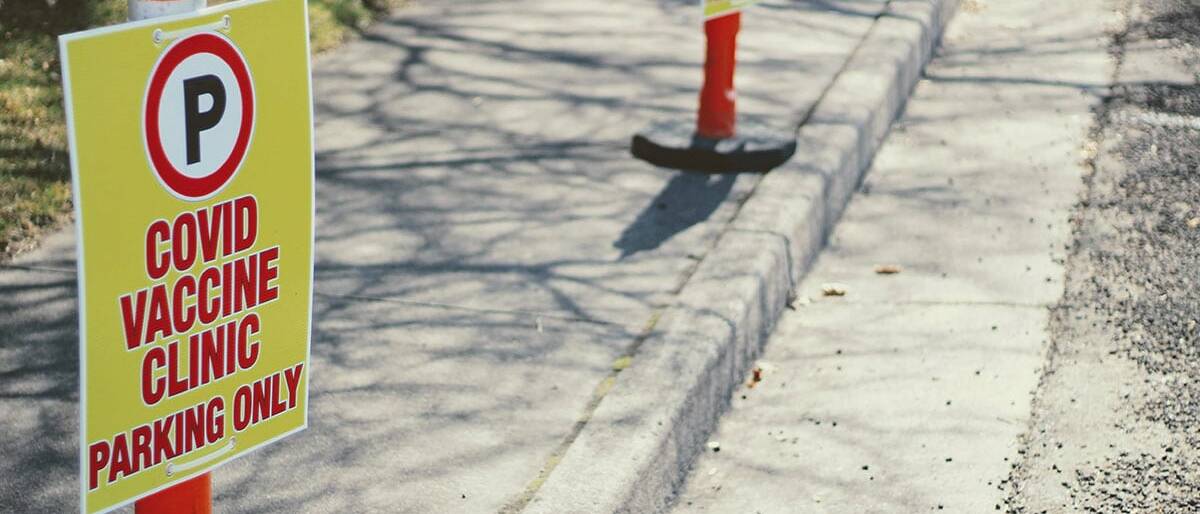
3 Questions, 2 jabs, 1 Millennial
Opinion + AnalysisHealth + WellbeingPolitics + Human Rights
BY Rebecca Blake 28 JUL 2021
What started out as a trip to get my flu shot turned into a quick, loaded political decision.
Fortunately, by stopping and reflecting, I left politics to the pollies and made my decision based on ethics.
When Prime Minister Scott Morrison announced that anyone under 40 could approach their GP to get the AstraZeneca vaccine, I decided to act. We were not long into Sydney’s second lockdown and already I was feeling the frustration of isolation. I called my GP and was told to book a consultation first before making any appointments for the jab. I decided to make a day of it and booked both my consultation and flu shot as one appointment. Any outing in Covid times is a highlight, am I right?
One week later I sat down in front of my GP. He said, “I know you’re here for your flu shot but given the situation we’re in, I strongly recommend you get the AstraZeneca. What do you want to do?” In the space of 30 seconds I had to decide whether to AZ now, or to Pfizer at some time in the future, date to be determined. The challenge? Putting aside the loaded politics and making an ethical choice.
I am aware I am privileged in being able to make this choice in the first place; I have the means to transport myself to and from the clinic, English is my first language so I can understand the information and make an informed consent. I am fit and healthy and being in a medical clinic, whilst not always comfortable, is not a traumatic experience for me. None the less given the bad rap the AZ vaccine has received, it was a little daunting.
So here are three questions this Millennial asked themself about getting the AZ vaccine now or waiting for Pfizer:
1. Who am I doing this for?
I am fully aware that the Pfizer vaccine is the preferred jab given there are some risks for young people when it comes to taking the AstraZeneca. A few friends have managed to somehow obtain a Pfizer vaccination through connections, either that or some back-alley vaccine deal (letting my imagination run wild). Black market fantasies aside, when it came to my decision making, I chose the non-preferred option as there was plenty of AZ supply to go around. This choice was my contribution to ensuring the small amounts of Pfizer are provided to those who need it most urgently.
Of course, I could wait until there is plenty of supply of Pfizer. But given that medical advice is that the vaccine reduces transmission, the decision to delay can impact the people around me, people who I love the most, such as my partner who is a teacher. I have friends who are immune-suppressed, and family members who are elderly. I feel, the more we all do to suppress transmission in the community, the safer they will be.
2. What does the best outcome look like? In the short term? In the long term?
Recently the government released an advertising campaign to encourage the public to get vaccinated. Most have seen the footage of a young woman, around my age, on a ventilator struggling to breathe and becoming increasingly distressed. There has been a lot of discussion concerning that this advert was aimed at young people, the very people who can’t get hold of the recommended vaccine for this age group. Like many, I find myself repeatedly frustrated about the vaccine roll out.
But there are actions I could do now to play my part in preventing this lockdown from lasting any longer. I have friends in the UK, many of whom have had the AZ vaccine. I want to do everything I can to help get life back to normal. I feel an overwhelming responsibility as a citizen to do what I can to prevent the spread, protect myself and fellow neighbour, and avoid the possibility of passing it on to someone I love. I channelled this frustration into an action that I as an individual can take. My decision to take the AstraZeneca was my way of contributing in some small way to increasing acceptance of a mass vaccination campaign that will improve the lives of the majority in the long term. Whilst it’s reported there are some small amounts of discomfort (fever, body aches and chills for the first 24 hours post vaccine) it’s a short-term pain for a long-term great gain.
3. What are the risks involved?
My anxiety does have its moments and I can catastrophise at the drop of a hat. The human brain likes to predict the future so it can be prepared. In moments where my anxiety flares up, I try and remember it’s just my body trying to protect itself. We tend to focus on the negatives – an easy thing to do during a global pandemic – particularly when combined with media reports of the risks and misinformation across social media.
Negativity bias is rife and it’s easy for us to be more motivated or affected by negative information than positive.
Faced with needing to make a quick decision I relied on the information given to me by my GP in the consultation.
The consultation involves your doctor thoroughly taking you through the potential risks of the AstraZeneca jab. The AZ vaccine has been associated with a rare side effect called thrombosis with thrombocytopenia syndrome (TTS). According to the Australian Government Department of Health website (www.health.gov.au), in every 1,000,000 cases there is a 3.1 chance of TTS for individuals under 50. Given the current situation in Sydney I felt the risks of COVID far outweighed the risks of adverse side effects from the vaccine. Sure, we do not know what the long-term vaccine effects could be, but it was a chance to consider the trade off between facts and knowledge and the assumptions that there might be some long-term effects from the vaccine. For now, I am sticking with my faith and trust in the medical industry. They have been working hard these past 18 months and have been right so far. Plus vaccines are not new, the first recorded use is from the 16th century in China for smallpox.
So what did I choose …
In the end, after weighing up these questions I was stoked to get poked. By the evening I was hit with the prewarned symptoms of fever and body aches but by the time 48 hours had passed, I was fit as a fiddle. I was surprised by how many work colleagues congratulated me saying how brave I was or how proud they were to know a young person playing their part to combat this disease.
One small disappointment. I didn’t get one of those, “I’ve been vaccinated stickers.” I may be 30 but the six-year-old in me was severely disappointed. Not even a lollipop… so if you choose to get the AZ vaccine… at least bring your own post poke treat.
Ethics in your inbox.
Get the latest inspiration, intelligence, events & more.
By signing up you agree to our privacy policy
You might be interested in…
Opinion + Analysis
Health + Wellbeing, Relationships
Ageing well is the elephant in the room when it comes to aged care
Explainer
Politics + Human Rights
Thought Experiment: The famous violinist
Big thinker
Politics + Human Rights, Relationships
Big Thinker: Confucius
Explainer
Politics + Human Rights
Ethics Explainer: Social Contract
BY Rebecca Blake
Rebecca is a writer, producer, director and theatre maker. Alongside their work with The Ethics Centre they are Artistic Associate and board member with Kings Cross Theatre. Prior to this, they were an Artist in Residence with the Barbican Centre and Rich Mix Theatre in London.
Pop Culture and the Limits of Social Engineering

Pop Culture and the Limits of Social Engineering
Opinion + AnalysisHealth + WellbeingRelationships
BY Lauren Rosewarne 19 APR 2021
In recent weeks, Unilever—the company behind a swag of domestic and personal care brands like Ponds and Lynx and Vaseline—announced that it would abandon “excessive digital alterations” in its advertising.
This isn’t a new public preoccupation for the company: in the 2010s one of its brands, Dove, aimed to position itself as a progressive corporation passionate about self-esteem and body image. Cue soap sales pitches packaged up with messages about hair-love and the perils of Photoshop.
I’m less interested in Unilever’s latest marketing gimmick, and much keener to examine the cultural debates that such a move contributes to.
In conversations with students about pop culture it quickly becomes apparent that most are convinced that The Media is a problem. Entertaining, enthralling, escapist, sometimes even educative – but a problem nonetheless. Students are always exceedingly well prepared to talk about the ways that The Media impacts self-esteem and are often armed with data on the extent of digital manipulation, ready to share robust views on “bias”.
Admittedly, I quite love that media literacy is like fluoride in the water for a generation and thoroughly appreciate that they can spot a filter or digital liposuction-induced wall-warp a mile away.
Being able to detect these things is an essential skill in navigating the glossy touts covering our screens. But such skills often lead to overconfidence about the next bit of the equation: what happens after we view all these artfully tweaked photos. About the consequences.
Such ideas aren’t new. Debates about the power and influence of media have kept scholars busy for over a century: radio was going to dangerously distract us, television was going to morally corrupt us, and the addictive properties of the internet would prevent us ever again turning away from our screens.
In discussing media content, in recognising a digitally altered photograph, we seem to dramatically overestimate our ability to predict what’s done with this information. Somehow apparently, instinctually, we just know that these images contribute to how we feel about our bodies, our relationships, our happiness. We just know that if The Media did a “better job” —reflected our lives more accurately, portrayed us in our full diversity and complexity —we’d have a better, more tolerant, less violent and vitriolic world.
In recognising a digitally altered photograph, we seem to dramatically overestimate our ability to predict what’s done with this information.
In talking about The Media as though it’s just one thing, one entity, and that the meetings are held on Thursdays to plot an agenda, overlooks not only the enormous variety of content—produced by different people in different countries with different budgets and different politics—but with the overarching agenda of just making money.
The output that we’re discussing when we refer to The Media —films and television and advertisements and news —are commercial endeavours. Content can absolutely be commercial and creative, or commercial and ideological. But when the primary goal is making money, suddenly all the social engineering often speculated upon is, in fact, just ways of interpreting content made purely to capture and hold our attention long enough to pay the bills.
Add to this, the nature of contemporary media consumption means not only are we getting a broader range of content but we’re dipping in and out of different eras of productions too: new episodes of shows stream on the same platforms as decades old movies and series. Add to this our ready access to content created all over the world. Such a broad catalogue complicates the idea of homogenous messages about anything, let alone beauty standards or cultural values.
The nature of pop culture means its content is consciously created for a broad audience. This doesn’t mean it’s not artistic or political or renegade —it can and sometimes is all of these things. But material produced for a popular audience is primarily made to make money; everything else it might achieve is an externality. Presuming all content producers are somehow in cahoots on an external cultural agenda is misguided.
Kidding ourselves that it’s the job of entertainment media to educate or flatter, overlooks the commercial underpinnings of pop culture.
Placing blame on The Media for our fraught feelings about our bodies, bank balances, love life overlooks there is no single Media entity but rather thousands of individual views, clicks, and likes that we electively undertake and which each play parts in shaping our world views, and which validate the very production decisions we often decry.
This project is supported by the Copyright Agency’s Cultural Fund.
Ethics in your inbox.
Get the latest inspiration, intelligence, events & more.
By signing up you agree to our privacy policy
You might be interested in…
Opinion + Analysis
Politics + Human Rights, Relationships
Why we should be teaching our kids to protest
Opinion + Analysis
Health + Wellbeing, Business + Leadership
The ethics of workplace drinks, when we’re collectively drinking less
Opinion + Analysis
Health + Wellbeing
HSC exams matter – but not for the reasons you think
LISTEN
Relationships, Society + Culture
Little Bad Thing
BY Lauren Rosewarne
Lauren Rosewarne is an Associate Professor at the University of Melbourne. She is the author of 11 books, her latest—Why We Remake: The Politics, Economics and Emotions of Film and TV Remakes—was released in 2020.
Your kid’s favourite ethics podcast drops a new season to start 2021 right

Your kid’s favourite ethics podcast drops a new season to start 2021 right
Opinion + AnalysisHealth + Wellbeing
BY Matthew Beard 21 JAN 2021
If your kids are anything like mine, the holidays have officially hit the ‘we’ve dragged on too long’ stage.
Your children drift like bored zombies from room to room, looking for another screen or toy to give them a fresh dopamine hit.
They don’t want to admit it, but they’re ready for school to go back. You’re all hanging out for that first day.
Good news! You can stop waiting. You don’t need to let the boredom drag on until school goes back. You can get your child’s – and your own – synapses firing right now and sharpen your ethical sensibilities in the process, thanks to a new season of Short & Curly, the award-winning, chart-topping ethics podcast produced by the ABC, and featuring Ethics Centre fellow Matt Beard (that’s me).
The podcast, now in its 13th season, is a playful, light-hearted and engaging exploration of ethics. It’s driven by the central belief that ethics is a team sport, and each twenty-minute episode features a number of ‘thinking questions’ where listeners are encouraged to pause the show to talk about some big ideas with the people around them. This isn’t just a podcast for your kids – it’s one for you as well!
The latest season comprises of five episodes on a wide range of topics and settings, including:
- A class being held back by an angry teacher hell-bent on finding out who stole her cookies, prompting us to ask: is collective punishment is ever justified?
- An impromptu beach trip is cancelled thanks to a fear of sharks – should we cull sharks to make sure that swimmers can enjoy the ocean free of fear?
- Frozen and The Avengers turn a casual trivia night into a discussion of one of the oldest questions in ethics: do the ends ever justify the means?
- As the Amazon – the lungs of the world – continues to burn, putting all of us an increased threat to climate change, we go on a tour of the Amazon and ask who owns the rainforest, and who should decide how to treat it?
- We take a tour of the wonderful world of robots! Looking at the various ways that robots could replace humans in the future, and ask whether or not they should.
One of the pitfalls of parenting is making ‘doing the right thing’ seem like the opponent of fun. If our kids see ethics as more closely connected to discipline than it is to curiosity, we risk setting them up for a mode of thinking that doesn’t serve them or the world they’ll help build.
Whether or not you’re tuning into the podcast, try to make imagination, creativity and curiosity your default settings when discussing ethics with your kids. Do your best not to close off discussion by giving your ‘authoritative’ view. Discussions don’t work well under hierarchies. And if you need some more pointers, check out our handy guide to talking to kids about ethics here.
Oh, and there may be some extremely bad rapping in one of the episodes. I won’t tell you which one, but be on the lookout!
Ethics in your inbox.
Get the latest inspiration, intelligence, events & more.
By signing up you agree to our privacy policy
You might be interested in…
LISTEN
Health + Wellbeing, Business + Leadership, Society + Culture
Life and Shares
Opinion + Analysis
Health + Wellbeing, Relationships
Eight questions to consider about schooling and COVID-19
Opinion + Analysis
Health + Wellbeing, Relationships
Australia’s paid parental leave reform is only one step in addressing gender-based disadvantage
Opinion + Analysis
Health + Wellbeing, Relationships
LGBT…Z? The limits of ‘inclusiveness’ in the alphabet rainbow
Join our newsletter
BY Matthew Beard
Matt is a moral philosopher with a background in applied and military ethics. In 2016, Matt won the Australasian Association of Philosophy prize for media engagement. Formerly a fellow at The Ethics Centre, Matt is currently host on ABC’s Short & Curly podcast and the Vincent Fairfax Fellowship Program Director.
Being a little bit better can make a huge difference to our mental health

Being a little bit better can make a huge difference to our mental health
Opinion + AnalysisHealth + Wellbeing
BY Matthew Beard 28 OCT 2020
When Hannah first started working at her university, she was excited to work with a group of colleagues who shared her vision of contributing to the public good.
She spent a happy six years feeling like she was serving this goal. Two years later, her GP described her as having symptoms consistent with a mental breakdown.
What changed? Hannah lost her belief that her colleagues shared her commitment to the public good. She explained how “several senior individuals prioritised building relationships with senior staff or performing tasks that were very visible to senior staff, instead of performing their core duties to the community.”
One manager – working as temporary cover for a worker on maternity leave – neglected Hannah and her team, and then took credit for their work. When the maternity leave was done, this manager was promoted into an even more senior role.
Psychologists and philosophers working in various fields of trauma have noted the powerful role played by the ‘just world hypothesis’ – the belief that the world is inherently fair.
The just world belief leads us to assume that if we’re nice, we’ll be treated nicely in return, if we work as hard as someone else, we’ll be equally recognised and so forth. Unfortunately, the just world hypothesis is sometimes disproved, and the results can be psychologically disruptive.
In some cases, people will double-down on their commitment to the just world hypothesis, and conclude that if they’ve been mistreated, it must be because they’ve done something wrong. In other cases, they might conclude that the world simply isn’t fair, and can’t be relied on. In Hannah’s case, it was the latter.
“These issues were structural, existential, ethical and were psychically wounding me,” says Hannah. “I saw evidence that the quality of my work was irrelevant to my job security – it was more about who I rubbed shoulders with.”
Hannah wound up doubling her anxiety medication, taking stress leave and resigning from the university. “I still feel nauseous thinking about work, and had a panic attack last week when I accidentally opened Outlook,” she says.
Hannah’s story isn’t a one-off. It’s backed up by hard data.
The recent Ethical Advantage report commissioned by The Ethics Centre found your mental health was affected by your belief in the following three things:
- Whether or not people keep their word
- Whether or not people honestly honour their agreements
- Whether or not people will step on others to succeed
The more you agree with these statements, the better your mental (and physical) health is likely to be. But the reverse is also true.
The less able you are to trust in the people around you to act ethically, the more likely your health – both mental and physical – is to suffer.
“If I had been able to keep the perception that colleagues around me were ‘good people’ I would have been able to maintain a sort of ‘we’re all in this together’ mentality,” says Hannah. Instead, witnessing competitive, dishonest behaviour led her to lose faith in what the university stood for, and the people she worked with.
Our research has found that all it takes is 10%. If people feel like the people around them are 10% better – just a little bit – it’s enough to give their health a bump. In some cases, it’s enough to keep someone from quitting, from experiencing a mental illness or doing something they think is wrong. From little things, big changes can grow.
For Hannah, those little things are exactly those identified in the Ethical Advantage report. What would have made a difference to her would have been seeing people “doing as they say, and following through.”
“A lot of hurt has happened when senior staff have said one thing, then said a very different, contradictory thing the next week,” she says.
Perhaps the saddest aspect of Hannah’s story is how preventable it all was. She was good at her job. She’s smart and worked hard, and was driven to anxiety and burnout by an environment of competition and manipulation.
This hit especially hard for H because her workplace put a particular focus on health and wellbeing. The university “pays a lot of lip service to health and wellbeing. Senior leaders talk about it all the time, and make sure we stay ‘resilient’ and know that we’re ‘supported’,” says Hannah.
Cass R Sunstein, a legal scholar and author of Nudge, which helped champion a new wave of behavioural economics, believes that we have a deeply-held moral heuristic to punish betrayals of trust.
This means the more we believe we can trust someone, the more harshly we judge breaches of that trust.
In Hannah’s case, her faith in her colleagues, in the purpose of the institution and in the care the university promised her were all let down.
The reason why the university’s culture became so competitive was because of a change of strategic priorities. Hannah’s university put a higher focus on income than education. Hannah explained how her university had become “more profit driven, especially this year.” As a result, “an ‘every man for himself’ attitude proliferated,” she said.
Ironically, because of the mental health implications of drifting away from its true purpose, the university’s goal – better financial outcomes – becomes harder to achieve. It’s expensive to have staff experiencing burnout and mental health issues. Hannah is now on stress leave.
In 2018, KPMG estimated that every instance of mental illness in the workplace costs an organisation $3200. On its own, this may not seem like much in the context of an organisation. However, data from the Survey of Mental Health and Wellbeing suggests almost 20% of the workforce experience mental health disorder. For a university of 3500 staff, that amounts to over $2 million a year in lost productivity. And that’s before we consider the more important costs – the pain and suffering of people like Hannah.
And the irony goes deeper. The competitive, ‘every person for themselves’ mentality caused Hannah to lose faith in the people around her. She no longer believed they were ethical people. Which is unfortunate, because our findings suggest people who are perceived as ethical can enjoy a bump to their wages. If you’re out for yourself, there’s a chance you’ll only be stepping on your own toes.
Of course, the reason for taking care of someone else’s mental health, treating them with respect and honouring your word isn’t because there’s something in it for you. If that’s all that’s motivating you, then something’s gone wrong. We should want to care for people at work because we care about them, period. People spend an inordinate amount of time at work – it’s a huge part of their lives – and they should be able to flourish there.
However, what this data helps us understand is just how easy it can be to turn things around for some people who aren’t living their best lives at work.
There are times when ethics can feel like an impossible burden. When the obligations thrust on us come at far too high a personal price. This isn’t one of those times. Hannah didn’t need to suffer. The university didn’t need to lose someone of her passion and talent. If only the people around her had tried a little harder to keep their word, acknowledge her work and do their jobs, she could have avoided a world of heartache. What’s more, there would have been no downside.
Hannah’s story is not unique. There’s a chance there are people like her in your workplace, your community, or even your family. So tomorrow, why not try being a little better? You don’t need to be a saint. Just 10% better.
That’s all it takes.
Ethics in your inbox.
Get the latest inspiration, intelligence, events & more.
By signing up you agree to our privacy policy
You might be interested in…
Opinion + Analysis
Health + Wellbeing, Relationships
How to deal with people who aren’t doing their bit to flatten the curve
Opinion + Analysis
Health + Wellbeing, Relationships
LGBT…Z? The limits of ‘inclusiveness’ in the alphabet rainbow
Opinion + Analysis
Health + Wellbeing, Relationships
It’s easy to ignore the people we can’t see
Opinion + Analysis
Health + Wellbeing


